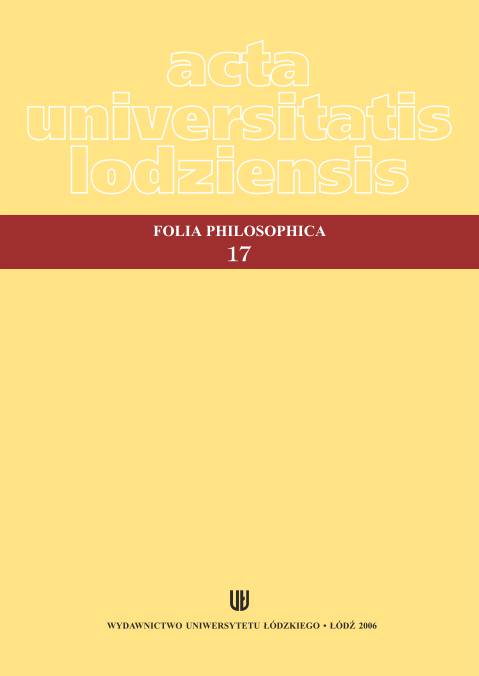O dwuznaczności "zwrotu praktycznego" w filozofii posokratejskiej
DOI:
https://doi.org/10.18778/0208-6107.17.01Abstrakt
In this paper I venture to examine from several different (but related) perspectives the ambivalent significance of practice in Greek thought. On the one hand, philosophical culture (vita contemplative or theoria) evolves in stark opposition to political culture (vita activa). On the other hand, philosophy in the era of post-Socratic schools takes the form of a spiritual practice (askesis) oriented on the conversion or transformation of the soul of a pupil, and quite often is defined as a preparation for social life (both in the ethical and political aspect). I discuss the Greek problem of anthropocentrism in the context of the critical opposition of bios theoretikos and bios politikos, special attention being paid to the internal tension between theoria (and its self-understanding) and philosophical practise as present in the schools. It is not my intention to deny the distance which separates theoria from praxis. Nevertheless, my objective is to bring out the ambivalence of the notion of theoretical contemplation in the context of Platonic dialectics. Near the end of the paper, I suggest – alluding to Nietzsche's judgment of the relation between post-Socratic and pre-Socratic philosophy – that one should approach with caution two very tempting visions of Greek philosophy. The one is the idea of alleged primacy of the practical over the theoretical in Greek philosophy. The other is the myth of the "primordial practise of the ancient sages", characterized in metaphysical terms.Pobrania
Opublikowane
2005-01-01
Jak cytować
Oleksy, M. (2005). O dwuznaczności "zwrotu praktycznego" w filozofii posokratejskiej. Acta Universitatis Lodziensis. Folia Philosophica. Ethica-Aesthetica-Practica, (17), 5–16. https://doi.org/10.18778/0208-6107.17.01
Numer
Dział
Articles
Licencja

Praca jest udostępniana na licencji Creative Commons Attribution-NonCommercial-NoDerivatives 3.0 Unported License.












